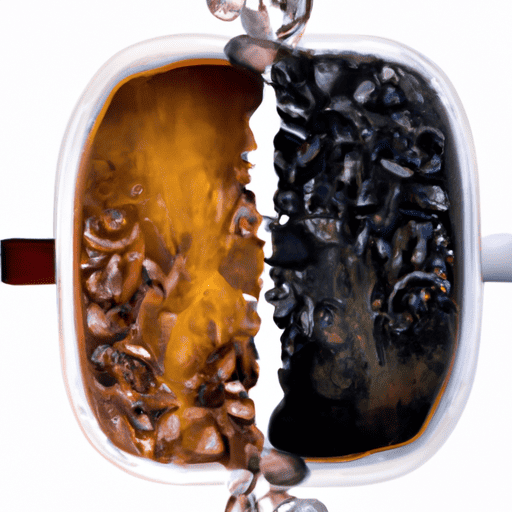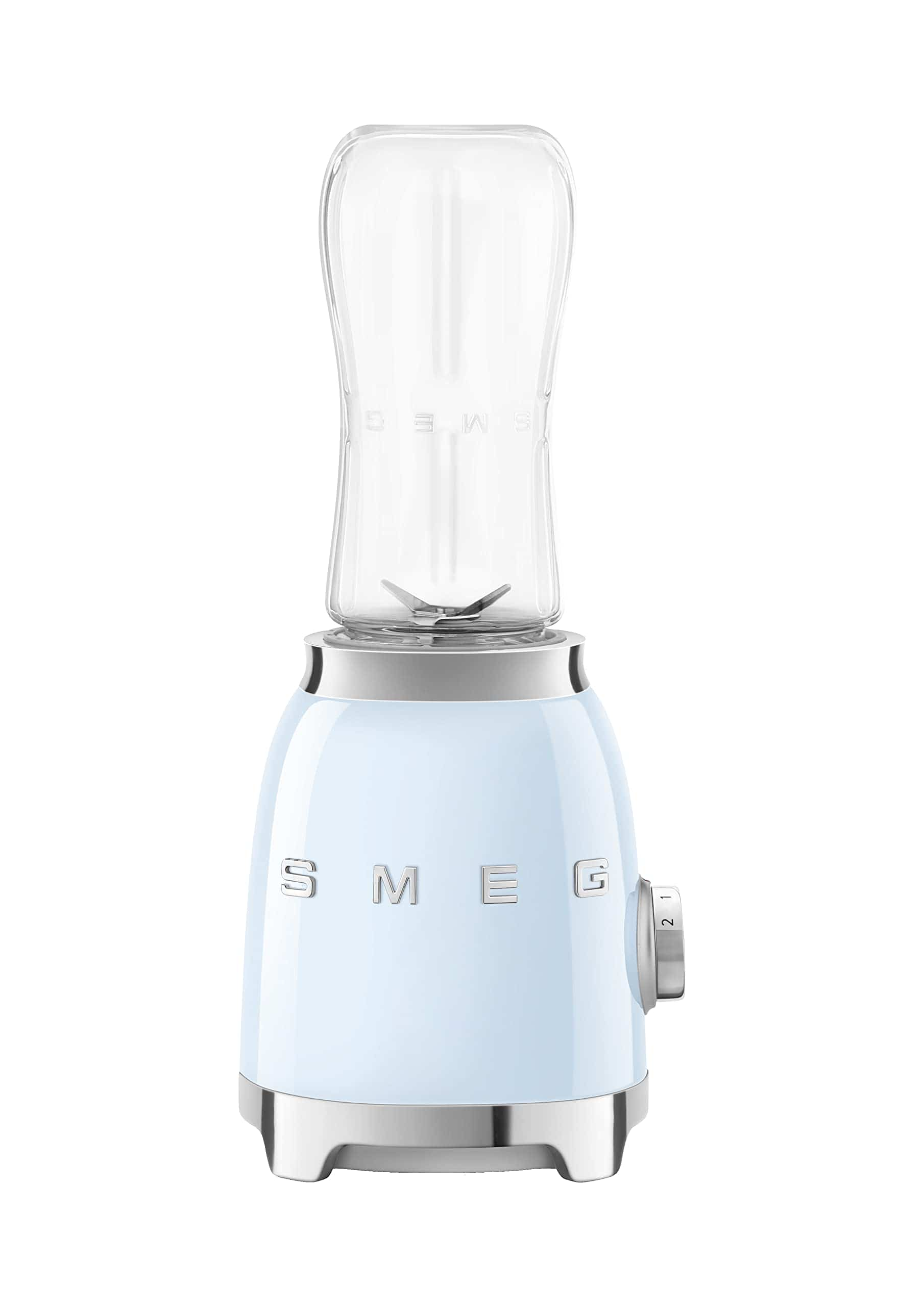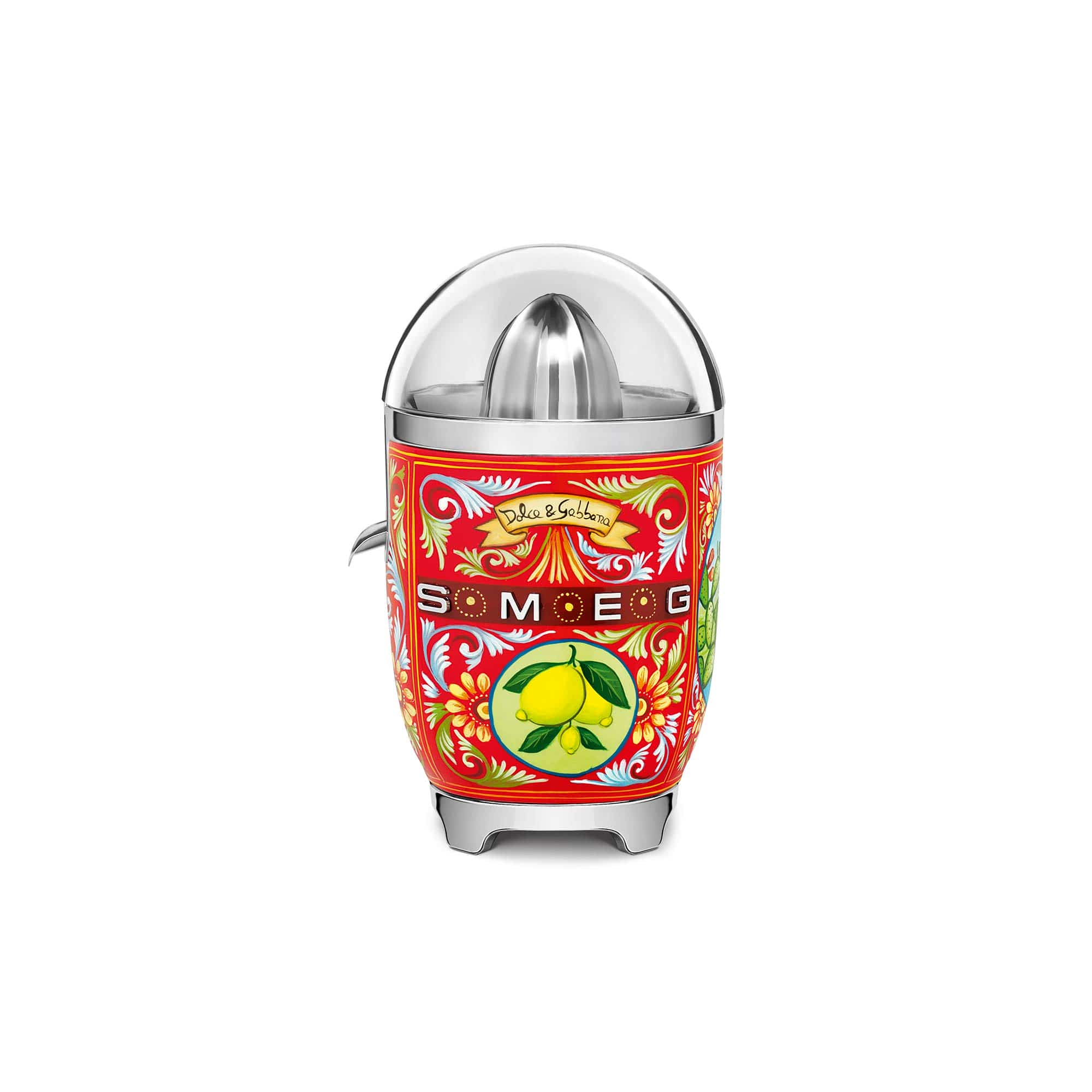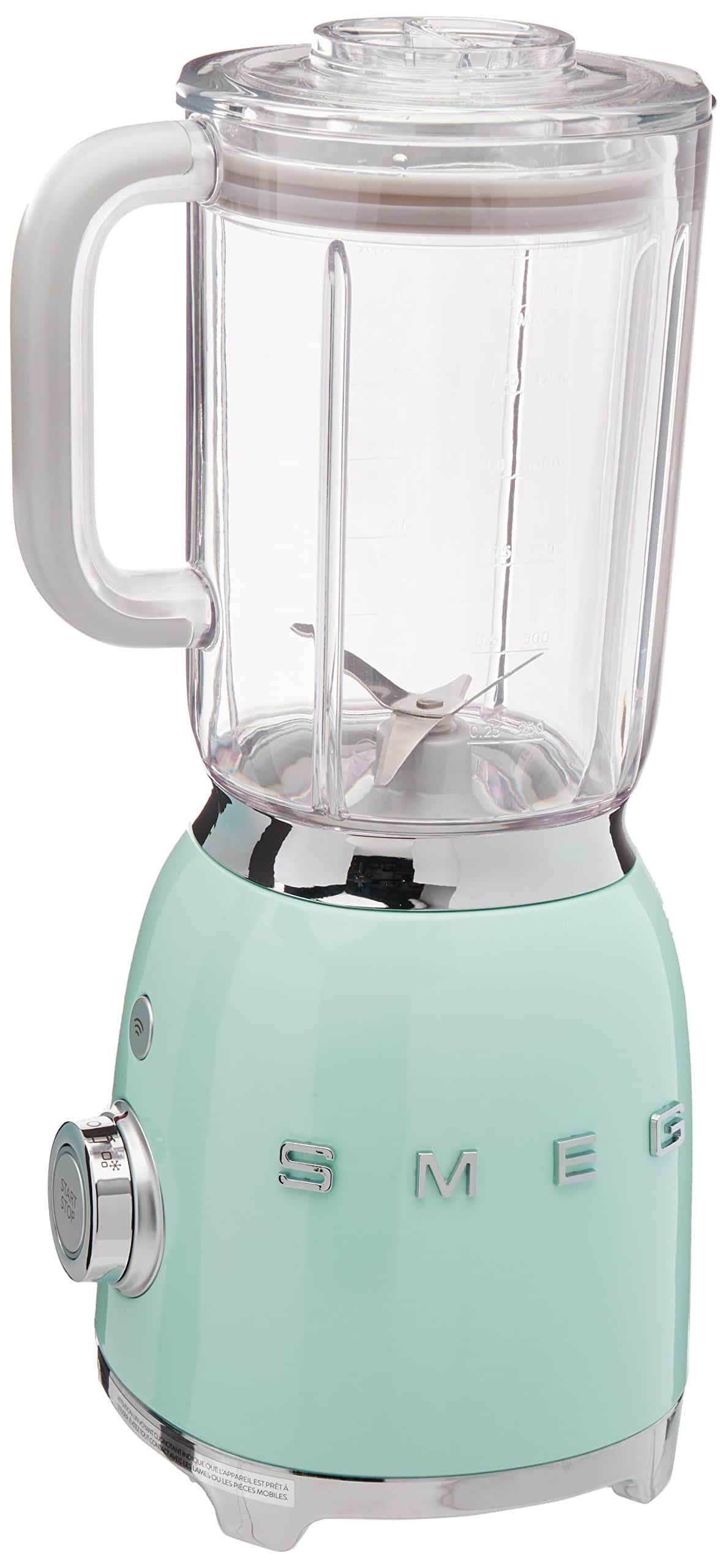Coffee Basics
Coffee: History, Health, And Fun Facts

Coffee has been a beloved drink for centuries, becoming a regular part of daily life for many people worldwide. Its long history and cultural importance have sparked extensive research into its origins, different types, and potential health advantages.
From its humble beginnings in Ethiopia to its widespread popularity in modern times, coffee has a fascinating story to tell. This article will delve into the history and varieties of coffee, exploring its origins and the different types of beans and roasts available.
We will also examine the health benefits and risks associated with coffee consumption, as well as some fun facts and recipes to try. Whether you’re a coffee aficionado or just enjoy a cup every now and then, this article will provide you with a comprehensive understanding of this beloved beverage.
So sit back, grab a cup of your favorite brew, and join us on a journey through the world of coffee.
Key Takeaways
- Coffee has a rich history and cultural significance, originating in Ethiopia and now being grown all over the world.
- There are two popular varieties of coffee beans, Arabica and Robusta, with different taste profiles and prices.
- Coffee has numerous health benefits, such as reducing the risk of type 2 diabetes and Parkinson’s disease, but excessive consumption can have negative effects.
- Coffee can be enjoyed in many different ways, using various brewing methods and flavors, and has even become an art form with the popularity of latte art.
Origin and Varieties
The origin of coffee can be traced back to Ethiopia, where the legend goes that a goat herder noticed his goats becoming more energetic after eating certain berries. These berries were later discovered to be coffee beans, and thus began the cultivation and production of coffee.
Today, coffee is grown all over the world, with some of the top producers being Brazil, Colombia, and Vietnam.
There are two popular varieties of coffee beans: Arabica and Robusta. Arabica beans are generally more expensive and have a smoother taste, while Robusta beans have a stronger and more bitter taste. Both types of beans are commonly used for brewing coffee using various methods such as drip, French press, and espresso.
The production of coffee beans involves a complex process of harvesting, washing, drying, roasting, and packaging, which can greatly affect the flavor and quality of the final product.
Health Benefits and Risks
Numerous studies have shed light on the potential advantages and disadvantages of consuming this widely popular beverage, with some suggesting that it may act as a double-edged sword, both improving and harming one’s physical and mental wellbeing.
On the one hand, coffee has been linked to numerous positive effects, such as reducing the risk of type 2 diabetes, liver cancer, and Parkinson’s disease. It may also improve cognitive function, increase alertness, and enhance physical performance. In addition, coffee contains antioxidants and other beneficial compounds that can protect against cellular damage and inflammation.
On the other hand, excessive coffee consumption has been associated with several negative effects, including insomnia, anxiety, and heart palpitations. It may also increase blood pressure, cause digestive issues, and exacerbate symptoms of certain mental health conditions. Furthermore, coffee can be addictive, leading to withdrawal symptoms if consumption is abruptly decreased or stopped.
Overall, while coffee may offer several health benefits, it is important to consume it in moderation and be aware of its potential risks.
Fun Facts and Recipes
Studies have shown that incorporating unique flavors such as vanilla and strawberry into coffee recipes can enhance the overall taste experience. Coffee lovers all around the world are constantly experimenting with various flavors and ingredients to create their own unique coffee recipes.
From the classic vanilla latte to the exotic lavender cappuccino, coffee shops and baristas are always coming up with new ways to make coffee more interesting and enjoyable. Aside from experimenting with flavors, creative coffee art ideas have also become a trend in the coffee industry.
Latte art, which involves creating designs on the surface of a latte using milk foam, has gained popularity in recent years. Baristas have taken it to the next level by creating intricate designs such as animals, portraits, and even 3D art.
Coffee trivia is also a fun aspect of the coffee culture, with interesting facts such as coffee being the second most traded commodity in the world after oil. These fun facts and creative ideas make coffee more than just a beverage, but an experience for coffee lovers to enjoy.
Frequently Asked Questions
How has the coffee industry impacted the environment?
The coffee industry is responsible for significant environmental impact, including deforestation and water pollution. Sustainable practices, such as shade-grown coffee and water conservation, are being adopted by some producers to mitigate this impact.
What is the most expensive type of coffee in the world?
The world’s most expensive coffee is Kopi Luwak, with a price of up to $600 per pound. This coffee is made from beans that have been eaten and excreted by Asian palm civets, raising ethical concerns about animal exploitation and sustainability. Some coffee producers have implemented fair trade practices in coffee bean cultivation to ensure equitable treatment of farmers and workers.
How do coffee beans get their different flavors?
Coffee beans get their different flavor profiles through the process of coffee roasting. The length and temperature of the roast can significantly impact the taste, acidity, and aroma of the coffee. Different roasting techniques create unique flavor profiles.
Can drinking too much coffee cause dehydration?
Drinking too much coffee may increase dehydration risks due to its diuretic effect. However, moderate coffee consumption has several benefits, including improved cognitive function, reduced risk of certain diseases, and increased alertness.
What is the history of coffee in different cultures around the world?
Coffee has deep cultural significance in many parts of the world. In Ethiopia, coffee ceremonies are a symbol of hospitality and community. The trade routes of coffee have shaped globalization and continue to impact the industry today.
Conclusion
In conclusion, coffee is not just a beverage, but a cultural icon with a rich history and diverse varieties. From the ancient Ethiopian legend to the modern-day specialty drinks, coffee has come a long way. Its health benefits and possible negative effects have been a topic of debate among scientists and coffee lovers alike. However, the sheer joy and pleasure that coffee brings to millions of people worldwide is undeniable.
Coffee has become a staple in social settings, workplaces, and various industries, including the global commodity market. The predicted increase in coffee imports indicates its growing popularity and demand. Fun facts and gourmet recipes add to the charm of this beloved drink, making it an integral part of our daily lives.
In summary, coffee is more than just a drink; it is a cultural phenomenon that has captured the hearts of millions worldwide. Its versatility, health benefits, and diverse varieties make it an all-time favorite.
So next time you sip on your morning cup of joe, take a moment to appreciate the rich history and culture that comes with it.
Justin is a seasoned author, coffee and tea enthusiast, and an essential member of the Cappuccino Oracle team. With a keen appreciation for the complexities of coffee, coffee alternatives, and tea, Justin has dedicated his professional career to exploring these realms and sharing his insights with readers worldwide.
Justin’s immersion in the world of coffee, coffee alternatives, and tea began at a young age, kindling a passion that extended beyond mere consumption. This love for these beverages led him to combine his talent for writing with his devotion to coffee and tea, bringing him to Cappuccino Oracle as a dedicated author.
Coffee Basics
Boost Your Keto Game: Mct Oil In Coffee

The ketogenic diet has become increasingly popular in recent times for its effectiveness in promoting weight loss and enhancing overall health. This diet, which is low in carbohydrates and high in fats, focuses on reducing carb intake significantly and replacing it with healthy fats to stimulate the body to enter a state of ketosis. During ketosis, the body burns fat for energy instead of carbohydrates.
One of the key components of the ketogenic diet is the use of MCT oil, a unique type of oil that provides a range of health benefits and helps the body produce ketones. MCT oil is extracted from coconut or palm oil and is rich in medium-chain triglycerides, which are quickly metabolized by the liver and converted into ketones. This process helps the body stay in ketosis and encourages fat-burning.
In addition to its role in the ketogenic diet, MCT oil has been shown to have other health benefits, including improved brain function, anti-microbial properties, and improved liver health. Adding MCT oil to your coffee, also known as bulletproof coffee, is a popular way to incorporate this oil into your diet and boost your energy levels.
In this article, we will explore the benefits of adding MCT oil to your coffee and provide a recipe for a keto-friendly latte that uses non-dairy milk substitutes and natural sweeteners.
Key Takeaways
- MCT oil is extracted and refined from coconut or palm oil and provides more health benefits than other oils.
- Adding MCT oil to coffee can support the ketogenic diet by helping the body stay in ketosis, boosting energy, and encouraging fat-burning.
- Bulletproof coffee, which includes MCT oil and unsalted grass-fed butter or ghee, is a popular drink on the ketogenic eating plan.
- While keto coffee can reduce appetite and make people feel fuller, it should not be substituted for breakfast as it lacks essential nutrients and can increase cholesterol levels due to its high levels of saturated fat and calories.
MCT Oil Benefits
The benefits of MCT oil are numerous and make it a valuable addition to coffee for those following a ketogenic diet. MCT oil is rapidly digested and goes straight to the liver, where it is used to produce ketones critical to the keto diet. This helps the body stay in a state of ketosis, where it is burning fat for energy instead of carbohydrates.
In addition to promoting fat-burning, MCT oil has anti-microbial properties, improves liver health, and fights heart disease. It may also be an effective treatment for insulin resistance and type 2 diabetes, and promotes mental clarity and brain function.
The recommended daily dosage for MCT oil is 1-2 tablespoons, although it is important to start slowly and increase gradually as it can cause stomach issues for some people. While it should not be substituted for usual cooking oil due to its low smoke point, MCT oil can be added to coffee, smoothies, salad dressings, and sauces to provide additional health benefits.
Bulletproof Coffee Recipe
One popular drink on the ketogenic eating plan consists of blending together coffee, unsalted grass-fed butter or ghee, and MCT oil, with grass-fed dairy being preferred for its higher omega-3 fatty acid and vitamin content. This recipe is known as bulletproof coffee, and it is often used as a breakfast replacement for those following a keto diet. However, the high-calorie content of this beverage, which can contain up to 500 calories per serving, suggests that it should be consumed in moderation.
There are many variations of bulletproof coffee, with some adding cinnamon, vanilla extract, or even protein powder to the mix. To prepare the beverage, it is important to blend the ingredients together, as water and oil do not mix.
Non-dairy milk substitutes like almond milk or coconut milk can be used instead of dairy, and natural, non-nutritive sweeteners like stevia or low-carb sugar alcohols like erythritol can be used as alternatives to sugar. While bulletproof coffee can be a tasty addition to a keto diet, it is important to be mindful of its high calorie and saturated fat content.
Tips for Making Keto Coffee
To enhance the taste and nutritional value of your morning beverage, incorporating keto-friendly ingredients such as grass-fed butter or ghee, non-dairy milk substitutes, and natural sweeteners can be beneficial.
For those who prefer coffee alternatives, tea or herbal infusions such as peppermint, chamomile, or ginger can be used as a base for keto-friendly drinks.
Adding MCT oil to these beverages can provide an extra boost of energy and help promote fat-burning.
When it comes to sweeteners, natural, non-nutritive options such as stevia or low-carb sugar alcohols like erythritol can be used as alternatives to sugar in coffee.
These sweeteners do not raise blood sugar levels and are safe for those following a ketogenic diet.
Other keto-friendly sweeteners include monk fruit extract and xylitol.
Experimenting with different coffee recipes and ingredients can not only enhance the taste of your morning beverage but also help you stay on track with your keto diet.
Frequently Asked Questions
Can MCT oil be used as a substitute for regular cooking oil?
MCT oil should not be used as a substitute for regular cooking oil due to its low smoke point. However, it can be incorporated into recipes for its health benefits and unique properties. MCT oil recipes include keto-friendly snacks and adding it to coffee or smoothies.
Is it safe to consume MCT oil in large quantities?
Like any substance, excessive consumption of MCT oil can cause toxicity. While it has numerous health benefits, consuming large quantities may lead to digestive issues and harm gut health. Moderation and consultation with a healthcare provider is recommended.
Can keto coffee be used as a meal replacement?
Keto coffee, containing MCT oil and butter, lacks essential nutrients and should not be used as a meal replacement. Benefits of intermittent fasting and the importance of protein in a keto diet should be considered for optimal health.
What is the recommended amount of MCT oil to add to coffee?
To achieve optimal dosage of MCT oil in coffee, it is suggested to consume 1-2 tablespoons daily. Incorporating this amount may provide various health benefits, including improved liver health, anti-microbial properties, and promotion of fat-burning and mental clarity.
Can other oils be used instead of MCT oil in keto coffee?
Coconut oil is a suitable substitute for MCT oil in keto coffee. It has similar health benefits, including increasing ketone production and promoting fat-burning. However, it has a lower concentration of MCTs and may have a slight taste difference.
Conclusion
In conclusion, the addition of MCT oil to coffee can provide numerous benefits for those following a ketogenic diet. The unique properties of MCT oil allow it to go straight to the liver and produce ketones critical to maintaining a state of ketosis. This, in turn, can lead to increased energy and fat-burning abilities. Moreover, MCT oil has anti-microbial properties, promotes liver health, and enhances mental clarity and brain function.
However, it is important to note that MCT oil should not be substituted for regular cooking oil and may cause stomach issues for some individuals. It is recommended to start slowly and increase gradually. Additionally, making a keto-friendly latte with non-dairy milk substitutes and natural sweeteners can further enhance the benefits of MCT oil in coffee.
So, boost your keto game with MCT oil in coffee, but remember to use it wisely and in moderation.
Arf, an author and an innovative enthusiast of coffee, coffee alternatives, and tea, plays a crucial role as a contributor to the esteemed Cappuccino Oracle platform. Renowned for his curiosity and passion for these captivating beverages, Arf has carved out a unique space for himself in the world of exploration and writing. He realized that coffee, coffee alternatives, and tea are not mere drinks to keep one awake, but universes of flavors and stories waiting to be explored.
Arf’s articles for Cappuccino Oracle blend meticulous research with personal experiences, providing readers with an in-depth understanding of various types of coffee, coffee alternatives, and tea, along with their unique characteristics, cultures, and histories. His honest reviews and engaging narratives guide readers on their own journeys, helping them discover their preferences and find their perfect brew.
Coffee Basics
The Truth About Natural Sweeteners 🍯🍁🍇

Natural sweeteners have become a trendy substitute for regular sugar due to their perceived health benefits and natural origins. It is crucial to note that not all natural sweeteners are alike, so it is essential to distinguish between them in order to make well-informed choices about which to incorporate into your diet.
This article aims to provide an evidence-based exploration of the various types of natural sweeteners available, as well as artificial sweeteners, novel sweeteners, and sugar alcohols. The article will present both the pros and cons of each type of sweetener, with a focus on the potential health benefits and drawbacks of each.
In addition, the article will highlight the importance of choosing high-quality, pure extracts of non-nutritive natural sweeteners like stevia and monk fruit extract, which can provide health benefits without the additives found in some other sweeteners. Overall, this article aims to provide a comprehensive and objective overview of the truth about natural sweeteners, to help readers make informed decisions about which sweeteners to use in their diets.
Key Takeaways
- Natural sweeteners are growing in popularity and make up 2/3 of all sugar substitute consumption.
- Not all natural sweeteners are the same and need to be understood for informed choices.
- Non-nutritive natural sweeteners like stevia and monk fruit extract have zero calories and are growing in popularity. They provide potential health benefits and have antioxidant properties.
- Swapping sugar for artificial sweeteners doesn’t help people lose weight and can lead to overconsumption of calorie-laden foods and a preference for super-sweet foods.
Types of Natural Sweeteners
Various types of natural sweeteners, including honey, agave syrup, maple syrup, molasses, yacon syrup, and coconut sugar, have become increasingly popular as sugar substitutes. However, it is important to note that these sweeteners have unique properties and nutritional values that should be taken into consideration when making informed choices.
For instance, honey contains flavonoids and phenolic acids with strong antibacterial properties, but it has more calories and carbs than sugar and can raise blood glucose levels quickly.
Agave syrup, on the other hand, has a lower glycemic index than sugar and honey, making it a better choice for diabetics. However, high fructose consumption linked to heart disease should be taken into account.
Maple syrup contains more antioxidants than honey and can lower blood glucose levels, but its calorie and carb content is similar to white sugar.
Molasses has good nutrient content and antioxidant properties, but it is essentially a dietary one-for-one swap with sugar. Therefore, consumer education is crucial in making informed choices about the health effects of natural sweeteners.
Pros and Cons of Honey
Honey, a natural sweetener with antibacterial properties, has become increasingly popular in recent years. However, it is important to understand that honey is not a low-calorie or low-carbohydrate alternative to sugar. In fact, honey has more calories and carbohydrates than sugar and can quickly raise blood glucose levels.
To better understand the nutritional content of honey compared to sugar, the following table provides a comparison of the two sweeteners:
| Sweetener | Calories per 100g | Carbohydrates per 100g |
|---|---|---|
| Sugar | 387 | 100 |
| Honey | 304 | 82 |
As shown in the table, honey has slightly fewer calories and carbohydrates than sugar. However, the difference is not significant enough to make honey a healthier alternative. Additionally, while honey contains flavonoids and phenolic acids with strong antibacterial properties, consuming too much honey can lead to negative health effects, such as weight gain and an increased risk for type 2 diabetes. Therefore, it is important to consume honey in moderation and to understand that it is not a low-calorie or low-carbohydrate alternative to sugar.
Agave Syrup and its Glycemic Index
Agave syrup, a popular natural sweetener, has gained attention due to its lower glycemic index than sugar and honey, making it a better choice for diabetics. The glycemic index measures how quickly a food raises blood sugar levels, and agave syrup’s low GI means it causes a slower rise in blood sugar levels than sugar or honey.
However, it’s essential to note that agave syrup is still high in fructose, and consuming too much can lead to health problems like weight gain, insulin resistance, and heart disease. Consumers looking for agave syrup alternatives should consider other natural sweeteners like stevia or monk fruit extract, which have zero calories and don’t impact blood sugar levels.
Those with diabetes or trying to manage their blood sugar levels should consult their healthcare provider before making any dietary changes. It’s also crucial to remember that natural sweeteners are still a form of sugar and should be consumed in moderation.
Benefits and Drawbacks of Maple Syrup
Maple syrup, a popular natural sweetener, has both benefits and drawbacks that consumers should consider. It contains more antioxidants than honey and may even lower blood glucose levels. However, its calorie and carb content is similar to white sugar, so it should be consumed in moderation.
Consuming too much maple syrup can lead to weight gain and other potential health risks. As with all natural sweeteners, it is important to understand the nutritional value and health benefits, as well as the potential risks of consuming too much.
Alternatives to natural sweeteners, such as artificial sweeteners and sugar alcohols, also have their own pros and cons. It is important for consumers to make informed choices and consider all options before making a decision.
Molasses as a Sugar Substitute
Molasses, a dark, viscous syrup that is a byproduct of sugar production, is a viable option for those looking to use a natural sweetener. It contains antioxidant properties and good nutrient content, making it a better option than white sugar.
Molasses essentially acts as a dietary one-for-one swap with sugar, meaning that it can be used in the same quantity as sugar in recipes. There are also molasses alternatives available, such as blackstrap molasses, which is a darker, thicker, and less sweet variety that is often used in baked goods.
Molasses can also be used in baking recipes, such as in gingerbread cookies or as a glaze for ham. However, it is important to note that molasses raises blood glucose levels and should be consumed in moderation, especially for those with diabetes or other health conditions.
Frequently Asked Questions
Are there any natural sweeteners that are completely calorie-free?
Calorie-free options among natural sweeteners are limited. Stevia and monk fruit extract are non-nutritive options, providing zero calories. Artificial sweeteners, such as saccharin, cyclamate, aspartame, and sucralose, are also calorie-free but may have drawbacks.
Can consuming too much yacon syrup have any negative effects on health?
Consuming excessive amounts of Yacon syrup may lead to diarrhea. However, Yacon syrup benefits include being a low-calorie sweetener containing fructooligosaccharides that cannot be digested, making it a healthier alternative to sugar. Other alternatives include monk fruit extract and stevia.
How does the nutrient content of coconut sugar compare to that of regular white sugar?
Coconut sugar has a similar calorie and carbohydrate content to white sugar, but contains more nutrients and inulin which can make one feel fuller. Calorie-free options such as stevia and monk fruit extract are growing in popularity.
Are there any potential health risks associated with consuming sugar alcohols?
Potential risks associated with sugar alcohols include digestive issues such as gas, bloating, and diarrhea. Although low in calories and carbs, they are commonly added to commercial products and can cause side effects in patients with existing gastrointestinal problems or diseases.
Can natural sweeteners like stevia and monk fruit extract be used in baking and cooking like regular sugar?
Stevia and monk fruit extract can be used as baking alternatives to regular sugar, with a slightly different taste. Taste comparison studies have shown that they can be used in a variety of recipes without compromising flavor or texture.
Conclusion
In conclusion, natural sweeteners are a popular alternative to traditional sugar, but not all are equal in terms of health benefits.
Honey, while a natural sweetener, still contains high levels of sugar and calories. Agave syrup may have a lower glycemic index, but it is also highly processed and may not be suitable for people with diabetes. Maple syrup and molasses both have their own unique benefits and drawbacks as sugar substitutes.
It is important to choose high-quality, pure extracts of non-nutritive natural sweeteners like stevia and monk fruit extract to avoid additives and retain health benefits. These natural sweeteners have been shown to have antioxidant properties, lower blood sugar levels, and anti-inflammatory properties.
However, it is important to consume them in moderation and as part of a balanced diet.
As the saying goes, ‘everything in moderation’. While natural sweeteners may offer potential health benefits, it is important to be mindful of their sugar and calorie content. By making informed choices and using natural sweeteners in moderation, individuals can enjoy the benefits without compromising their health.
Arf, an author and an innovative enthusiast of coffee, coffee alternatives, and tea, plays a crucial role as a contributor to the esteemed Cappuccino Oracle platform. Renowned for his curiosity and passion for these captivating beverages, Arf has carved out a unique space for himself in the world of exploration and writing. He realized that coffee, coffee alternatives, and tea are not mere drinks to keep one awake, but universes of flavors and stories waiting to be explored.
Arf’s articles for Cappuccino Oracle blend meticulous research with personal experiences, providing readers with an in-depth understanding of various types of coffee, coffee alternatives, and tea, along with their unique characteristics, cultures, and histories. His honest reviews and engaging narratives guide readers on their own journeys, helping them discover their preferences and find their perfect brew.
Coffee Basics
Meet Andrew King: Climbing For Change

Mountaineering and outdoor sports have historically lacked diversity and representation, but Andrew Alexander King is defying stereotypes and overcoming barriers as he ascends to the summit.
As an African American mountaineer, surfer, and humanitarian, King is on a mission for greater inclusion and change in the climbing community. Despite facing numerous challenges and obstacles, King has not let them deter him from achieving his goals.
In fact, he has used his passion for outdoor sports to fuel his philanthropic work and combat issues such as sexism, racism, and climate change. Through his organization, The Between Worlds Project, King is dedicated to helping developing communities along his nature expeditions and working with nonprofits in need of resources.
In this article, we delve into Andrew King’s inspiring journey and his mission to make a positive impact on the world.
Key Takeaways
- Andrew Alexander King is a mountaineer, surfer, and champion of humanitarian issues who founded The Between Worlds Project to help developing communities along his nature expeditions.
- He is passionate about outdoor sports because they bring him inspiration and searches for and works with nonprofits that need resources to add something positive to the community.
- Andrew’s mission is to climb, surf, and dive his way to a more inclusive world, combat issues from sexism, racism, climate change, and other humanitarian issues, and create a place where all people, no matter their color or gender identity, can find hope and peace.
- Super Coffee fuels Andrew’s routine, and his morning routine includes meditation, writing a poem in his journal, and setting three intentions for the day as the first thing he does in the morning.
Andrew’s Background
Andrew Alexander King has a background in mountaineering and surfing, as well as being a champion of humanitarian issues. He founded The Between Worlds Project to provide aid to developing communities along his nature expeditions.
Andrew’s childhood was spent in Hawaii, where he gained experience surfing and exploring nature. This early exposure to the outdoors fueled his passion for outdoor sports, which he believes bring inspiration and a deeper understanding of what it means to be human.
Andrew’s early surfing experiences in Hawaii helped shape his worldview and his dedication to humanitarian issues. He believes that his time spent in the water taught him about the interconnectedness of all living things and the need to care for the environment. These experiences also taught him about the importance of community and working together to create a better world.
This early exposure to nature and the lessons learned from his surfing experiences have shaped Andrew’s approach to climbing and his mission to combat issues like racism, sexism, and climate change.
Passion for Outdoor Sports
The pursuit of outdoor sports has been hailed as a source of inspiration by individuals seeking to add something positive to their communities and beyond.
Andrew Alexander King, a mountaineer, surfer, and champion of humanitarian issues, is one such individual. He believes that outdoor sports, such as climbing, surfing, and exploring nature, allow individuals to push past mental and physical walls, expand their perspectives, and gain inspiration from the world around them.
For Andrew, outdoor sports provide an opportunity to reflect on what he has learned from others and gain a deeper understanding of what it means to be human. Climbing mountains and volcanoes, meditating at the top, and exploring the natural world are some of the ways in which he seeks to add something positive to his community.
By working with nonprofits that need resources, he hopes to combat issues such as sexism, racism, and climate change that impact communities and learn how to stand with them on these issues.
Ultimately, Andrew’s passion for outdoor sports is rooted in his desire to create a place where all people, no matter their color or gender identity, can find hope and peace through the mental and physical challenges that outdoor sports provide.
Philanthropic Work
Philanthropic work is a key aspect of Andrew Alexander King’s mission to combat humanitarian issues and add something positive to his community. The mountaineer, surfer, and champion of humanitarian issues partners with nonprofits to help communities in need.
His organization, The Between Worlds Project, assists developing communities along his nature expeditions. Andrew’s passion for outdoor sports inspires him to search for nonprofits that need resources to improve the community.
He cares for humanity as a whole and plants a tree of change for future generations. Andrew’s mission is to combat issues that impact communities, learn how to stand with them, and add something positive to the community.
Through his philanthropic work, he is creating a place where all people can find hope and peace.
Mission for Inclusion and Change
In the climbing community, underrepresented groups face numerous barriers to entry, with only 1% of climbers identifying as African American.
Andrew King is on a mission to explore diversity and fight for justice in the climbing world. He believes that everyone, no matter their color or gender identity, should have the opportunity to experience the beauty and challenge of climbing.
King is working towards greater representation in the climbing community, both through his own climbing achievements and by advocating for change. He is training to be the first African American to climb the highest peak on each continent, and he is also dedicated to creating a place where all people can find hope and peace.
King’s passion for outdoor sports stems from their ability to inspire and connect people, and he sees climbing as a powerful way to break down barriers and promote inclusivity.
By actively working to combat issues like sexism, racism, and climate change, King hopes to create a more inclusive and just world both on and off the mountain.
Frequently Asked Questions
What inspired Andrew to become a mountaineer and surfer, and how did he gain experience in these sports?
Andrew’s passion for mountaineering and surfing was inspired by his move to Hawaii as a young boy. He gained experience through exploring nature and surfing. Climbing allows him to overcome mental and physical challenges while meditating at the summit.
Can you provide more information about The Between Worlds Project and the impact it has had on developing communities?
The Between Worlds Project, founded by Andrew Alexander King, aims to help developing communities through his nature expeditions. The project has had a significant impact on community development, providing resources to support positive change.
How does Andrew choose which nonprofits to work with, and what kind of resources does he provide?
Andrew King selects nonprofits based on their alignment with his values and mission. He prioritizes organizations that combat social and environmental issues, and allocates resources such as funding and volunteer time to support their efforts. Nonprofit selection criteria and resource allocation are key factors in his philanthropic work.
What are some of the mental and physical challenges that Andrew faces while climbing, and how does he overcome them?
Climbing poses significant mental and physical challenges, which Andrew overcomes through mental toughness and strategic training. He uses meditation to push through mental walls, trains in high altitude environments, and practices self-care to maintain physical fitness and endurance.
Can you elaborate on Andrew’s mission to create a more inclusive world, and how he plans to achieve this goal through his outdoor pursuits and philanthropic work?
Andrew King’s mission is to create change through adventure and philanthropy in action. He aims to combat issues such as sexism, racism, and climate change, while working with non-profits and promoting inclusivity in the climbing community.
Conclusion
Andrew Alexander King is a mountaineer, surfer, and advocate for humanitarian issues. The founder of The Between Worlds Project, he is committed to supporting developing communities while pursuing his passion for outdoor sports. Andrew is striving to become the first African American to climb the highest peak on each continent, while also working to combat issues such as sexism, racism, and climate change. He partners with various nonprofits to provide resources for their causes and promote greater representation in the climbing community.
Andrew’s background and experiences have shaped his mission to effect change in the world. He recognizes the power of outdoor sports to unite people and to inspire positive social and environmental impact. Through his philanthropic work, he strives to empower marginalized communities and to promote diversity and inclusion in the outdoor industry. His passion for climbing and surfing is a catalyst for advocacy, and he is determined to inspire others to take action and join him in creating a more just and equitable world.
While some may argue that outdoor sports and philanthropy are separate pursuits, Andrew’s work demonstrates that they can be intertwined for the greater good. By using his platform as a professional climber and surfer to raise awareness and support for important causes, he is showing that anyone can make a difference, regardless of their background or skill level.
Andrew’s commitment to inclusion, environmental sustainability, and community building is an inspiration to all, and his message is clear: we can all climb for change.
Arf, an author and an innovative enthusiast of coffee, coffee alternatives, and tea, plays a crucial role as a contributor to the esteemed Cappuccino Oracle platform. Renowned for his curiosity and passion for these captivating beverages, Arf has carved out a unique space for himself in the world of exploration and writing. He realized that coffee, coffee alternatives, and tea are not mere drinks to keep one awake, but universes of flavors and stories waiting to be explored.
Arf’s articles for Cappuccino Oracle blend meticulous research with personal experiences, providing readers with an in-depth understanding of various types of coffee, coffee alternatives, and tea, along with their unique characteristics, cultures, and histories. His honest reviews and engaging narratives guide readers on their own journeys, helping them discover their preferences and find their perfect brew.
-

 Coffee Basics3 days ago
Coffee Basics3 days agoThe Ultimate Guide To Buying Nespresso Pods: Where And How?
-

 Coffee Basics6 days ago
Coffee Basics6 days ago11 Best Medium Roast Coffees For Your Perfect Cup
-

 Coffee Basics6 days ago
Coffee Basics6 days agoStarbucks Venti Drinks: Customization And Pricing Guide
-

 Coffee Basics2 days ago
Coffee Basics2 days agoPerfect Your Espresso With Puck Screens: A Barista’s Secret
-

 Cappuccino Oracle Selected Reviews8 hours ago
Cappuccino Oracle Selected Reviews8 hours agoSmeg Knife Block Review Review [2024]
-

 Coffee Basics5 days ago
Coffee Basics5 days agoWhat Is Half-Caff Coffee? (And How Much Caffeine Is In It?)
-

 Coffee Basics5 days ago
Coffee Basics5 days ago9 Best Ground Coffee Brands For Your Perfect Cup
-

 Coffee Basics6 days ago
Coffee Basics6 days agoCan You Froth Oat Milk? Yes, And Here Are Six Ways To Do So















